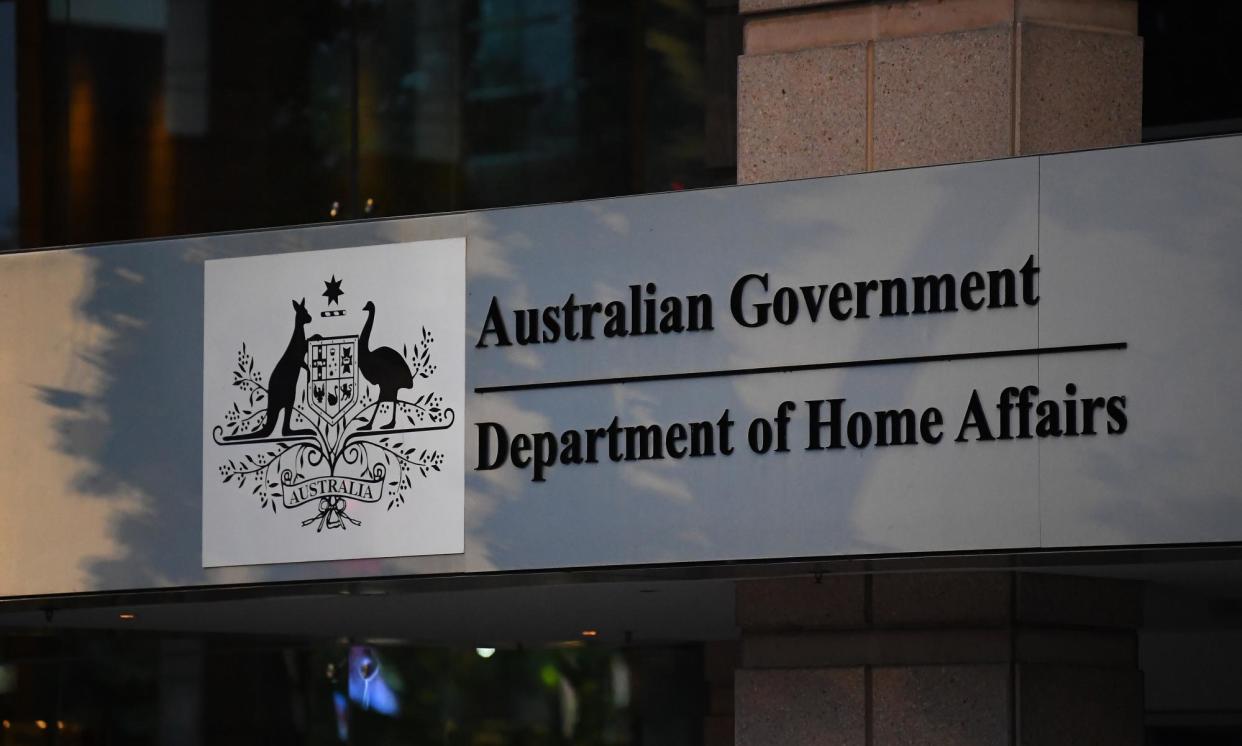Labor quietly extends work and Medicare rights to some visa-holders from Gaza and Israel

The federal government has extended work rights and Medicare access to some visa-holders from Gaza and Israel as it prepares to shift those who arrived on visitor visas since the 7 October attacks on to bridging visas.
Without public announcement, the government issued a regulation on 5 August extending Medicare access to people holding two subclasses of bridging visa E who had already been granted work rights, and also to immediate family members who are also visa-holders.
The measure took effect a week later, on 12 August. The regulation specifies it applies specifically to people from Israel and people from the Occupied Palestinian Territories.
Issued by a departmental delegate of the health minister, the legislative instrument affects subclasses 50 and 51. The first subclass is issued while people either finalise their immigration status or make preparations to leave. The second allows those who have applied for a protection visa to stay while their application is processed.
“The measure is part of the Australian Government’s response to provide additional assistance to those from significantly affected areas of Israel and the Occupied Palestinian Territories impacted by the Hamas-Israel conflict (and their immediate family members on a Bridging Visa E),” the written instrument says.
The bridging visa E subclasses do not automatically come with work or Medicare entitlements but the minister is able to direct that they be added. Work rights had already been added for the two subclasses, as indicated in the new health instrument, and Guardian Australia understands that access to interpreter services has also, separately, been added.
A spokesperson for the home affairs minister, Tony Burke, declined to comment on the addition of entitlements to the bridging visa conditions.
The government has confirmed that between 7 October last year and 12 August, 2,922 visas were issued to people from the Palestinian territories. Of those, only 1,300 people have been able to reach Australia to date. Another 7,111 applications were rejected. While no reasons have been given publicly, rejection can be on security grounds but may also be due to a lack of demonstrated connection to Australia or an assessed high risk of overstaying.
Between 7 October 2023 and 31 July 2024, the Department of Home Affairs cancelled 43 of the Palestinian visitor visas it had issued to people from Gaza who were still offshore. Subsequently, 20 had their cancellations revoked.
In the same period, 8,746 visas were granted to Israeli citizens, most being visitor visas, with 235 applications refused. Nine issued visas were cancelled and none reinstated.
In parliament on Thursday, the deputy opposition leader, Sussan Ley, asked if there had been any ministerial intervention in support of reinstating any of the 20 restored Palestinian visas.
“All decisions were made by the department,” Burke responded.
The accepted Palestinian applicants were issued visitor visas, which are available to people with established and provable family ties in Australia. These are different to tourist visas, for which family ties are not required.
Figures obtained by Guardian Australia indicate that as of 31 July, only 25 Israelis and eight Palestinians held E-class bridging visas in subclass 50 and there were none holding subclass 51.
However, as visitor visas are issued for a limited time and cannot be rolled over, and none of the visa-holders from Gaza can currently return, many more of those currently on visitor visas are expected to be transferred to bridging visas while their eligibility for other types of visas is assessed. Bridging visas can be extended.
The former immigration deputy secretary Abul Rizvi has queried why the government chose not to create a special category of humanitarian visa for people arriving from Gaza after Israel launched retaliatory attacks on the Hamas-run territory following the terrorist attacks.
When people were accepted from Afghanistan after coalition forces withdrew and the Taliban regained control in 2021, the government created a special class 449 visa for those with connections to Australia, either through family or employment with Australian military forces or in other government-contracted positions. However 449 visas must be personally granted by the minister, while visitor visas are issued through the department.
It is unclear why the Albanese government chose not to take that step initially, although government sources have suggested it is still considering that option.


